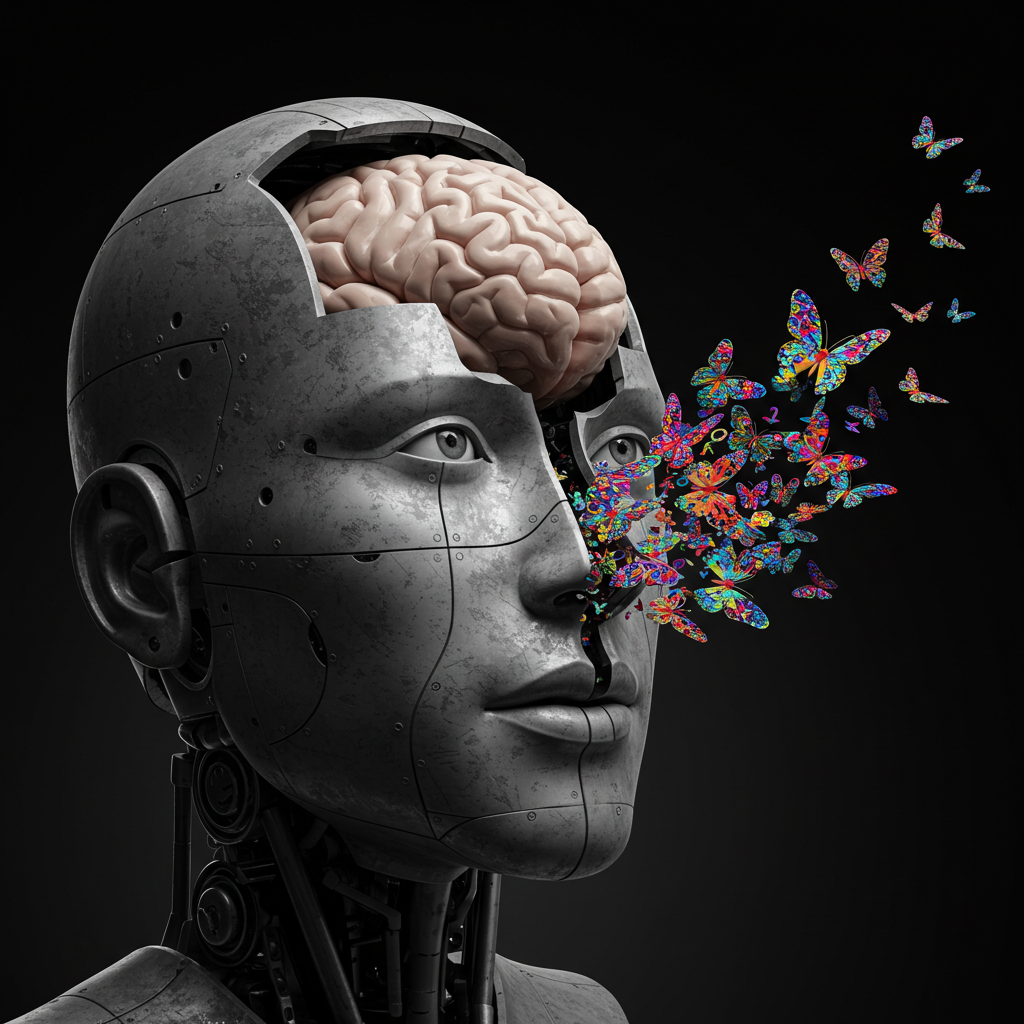Virtual Conference Schedule 📅 Date: March 27th, 2025 Times presented in Mountain Daylight Time MDT/GMT-6
Keynote Session | 9am
How Technical Communicators May Work Safely within the ‘Fog’ of Emerging GenAI Ethics
Speaker: Geoffrey Sauer
Live Stream Link
In his keynote last year, Stuart Selber offered an “AI Manifesto for Tech Comm Programs,” presenting five arguments why technical communicators should use, study, and teach GenAI technologies. This paper quite agrees with Selber, but in 2024 we have also seen influential calls which disagree–one example being Jennifer Sano-Francini et al.’s “Refusing GenAI in Writing Studies.” Bryan Alexander, a scholar who researches digital humanities, warned recently on social media that scholars seem quite divided about GenAI, possibly into irreconcilable factions.
We have all seen in the past decade how factionalism can negatively impact civil debate. This paper will discuss some reasons why technical communication scholars must take seriously the importance of GenAI, emerging critiques of GenAI, and will suggest how understanding the underlying technology may resolve nascent conflict, and enable positive and productive scholarship for everyone.
________________
10:00 am Paper Session: Getting the most out of AI
Session Link
Preparing Technical Communication Students for Careers in AI: Large Language Model Fine-Tuning
Jamie Littlefield
This presentation will explore how technical communication instructors can further prepare students for careers fine-tuning large language models. Drawing on my professional experience developing thousands of fine-tuning datasets for xAI’s latest large language models as well as insights from academic research, I will outline the key competencies required for LLM-related careers, including data annotation, prompt engineering, and textual analysis. I will also propose curriculum adaptations that integrate AI-related tasks, such as creating annotated datasets, interpreting user intent, and analyzing the rhetorical impact of AI outputs.
Making AI Visible: AI transparency using technical communication
Nupoor Ranade
Because of their constantly evolving nature and disciplinary complexity, documenting AI technologies is challenging and often handled by engineers. In this presentation, I argue that technical communicators, with their audience analysis and experience design competencies can help in making AI technologies visible to relevant users. My research is aimed at developing a practical method of implementing a core tenet of AI ethics – AI transparency, is both quantitative (ensuring all aspects of AI algorithms such as machine learning are covered) and qualitative (ensuring that the research outcomes address the needs of multiple audiences’ motivations, needs and opinions) ways.
Perspectives about the role of AI in assistive technology with implications for TPC pedagogy
Zsuzsanna Palmer
The proposed presentation will report on preliminary results from an interview-based study with 20 users of the screen reader software, JAWS. The presentation will not only summarize users’ impressions of how the screen reader software incorporates AI but will also explain interview participants’ overall attitudes towards AI in other areas of life such as education and transportation.Using quotes and themes identified in the transcripts of the interviews, different user perspectives will be outlined to support a deeper understanding of serious user concerns especially as some of the AI systems deployed to aid the disabled can inadvertently bring bodily harm to their users.
________________
11:30pm Paper Session: Classroom pedagogies and Activities
Session Link
Redesigning the Technical Communication Service Course for Gen AI
Stuart Selber and Eric York
We discuss changes to the service course that can help technical communication teachers and program directors address the challenges and opportunities posed by Gen AI. Our approach retains what we already know about running a service program and teaching its courses, but identifies new directions for teaching students how to approach content that is generated by AI robots. We also discuss policy changes that we might want to include in course syllabi. Building on our prior research comparing technical instructions written by humans and robots, we attempt to use some of the more well-regarded prompt-engineering strategies to see whether and how they can improve upon the technical instructions AI produces.
Fostering Ethical and Engaging Student Research in Technical Communication with NotebookLM
Codi Renee Blackmon
This presentation demonstrates how NotebookLM—a self-contained AI platform—can be used to guide undergraduates through ethical, iterative research in technical communication courses. By introducing a scaffolded assignment sequence built around curated source material, I show how NotebookLM helps students practice responsible information-gathering, rhetorical analysis, and inclusive writing strategies. The core of this approach lies in placing human-critical thinking at the forefront. By focusing on a single, cohesive assignment sequence, I provide a clear roadmap for technical communication instructors seeking to integrate AI responsibly.
Means, Motive, and AI? : Renegotiating Genre and Embracing AI in the Technical Writing Classroom
Justin Cook
In this presentation, I will describe a gamified technical writing activity that combines artificial intelligence (AI), rhetorical genre studies, and collaborative problem-solving. Inspired by Hunt a Killer board games, this project immerses students in a fictional murder mystery where they analyze AI-generated technical documents to identify genre conventions, detect critical clues, and solve the case. The assignment introduces common deliverables in Technical and Professional Communication (TPC), while fostering critical thinking, genre flexibility, and ethical AI literacy. I will demonstrate that AI-generated texts are both heuristic tools and practical challenges, supporting experiential learning and engagement.
________________
1:00pm Paper Session: Getting the most out of AI
Session Link
AI vs. Human Teachers: A Comparative Study on Student Writing Feedback
Mohamed Yacoub, Met’eb A. Alnwairan, Said Rashid Al Harthy, Abdullah S. Darwish, Youssef Yakoub
This research study evaluates and compares the grading and feedback provided by human teachers and artificial intelligence (AI) ChatGPT on student writing. The study involves collecting a diverse set of student writings, which are assessed independently by human educators and ChatGPT. By analyzing and contrasting the results, the research explores the effectiveness and reliability of ChatGPT in grading and providing feedback, offering insights into its potential integration into educational settings to support teachers in assessing student writing and delivering constructive feedback. The findings reveal that human feedback offers students a deeper understanding of writing patterns through metalinguistic commentary on genre elements, sentence structure, and stylistic choices.
Demystifying AI: Foundations, Training, and Professional Impact for Technical Communicators
Bremen Vance, Geoffrey Sauer, Guisseppe Getto
As artificial intelligence (AI) systems become increasingly integral to technical communication, understanding their core processes is essential for educators, practitioners, and researchers. This panel explores the foundations, technical intricacies, and professional implications of AI systems. We focus on training AI systems through fine-tuning, human reinforcement, and retrieval-augmented generation (RAG). The discussion will be structured across three perspectives: Why technical communicators must grasp AI’s mechanisms to remain effective educators, designers, and collaborators; a deep dive into the processes of AI training, fine-tuning, human reinforcement, and RAG; and how these AI processes are reshaping the workflows and skill sets of technical communicators.
________________
2:30pm Panel Session: Recentering Technical Editing: Human-Machine Collaborations in the Age of AI
Session Link
Lance Cummings, G. Edzordzi Agbozo, Colleen Reilly
Panelist 1: “Redefining Technical Editing in the Age of AI”
This speaker will examine how technical editors are evolving from traditional editing roles to become “content designers” who work with AI systems on both backend development and frontend refinement. They will discuss how editors are developing new competencies in machine collaboration, writing workflows, ethics, and usability when working with AI tools.
Panelist 2: “Navigating Concerns and Opportunities: Technical Editors’ Experiences with AI”
This speaker will share findings from interviews with technical editors and writing professionals about their experiences with AI tools. This qualitative research reveals key concerns about ethics and accuracy. However, editors are also finding creative ways to leverage AI, particularly for ideation, simplifying complex information, and collaborative problem-solving. The speaker will detail how the technical editors we interviewed are developing new workflows that maintain human oversight while taking advantage of AI’s capabilities for routine tasks and creative brainstorming.
Panelist 3: “Pedagogical Approaches to AI-Assisted Writing”
This speaker will share examples of classroom implementations of AI writing tools in technical communication courses. Using sample approaches and assignments from both technical editing and professional writing classes, this panelist will demonstrate how instructors are helping students develop critical awareness of AI capabilities and limitations through hands-on activities with tools like plain language bots and editing assistants.
________________
4:00pm Paper Session: Shifting roles, Skills, and Identities
Session Link
Reimagining Expertise: AI as a Co-Author in Technical Communication Workflows
Shiva Mainaly
Drawing on theories of posthumanism (Hayles, 1999) and distributed cognition (Hutchins, 1995), this paper argues that AI’s integration into technical communication workflows has created a symbiotic relationship between humans and machines, where expertise is no longer the sole domain of the human professional. This raises critical questions: How do we attribute authorship if AI can independently produce viable outputs? What becomes of the technical communicator’s role when their expertise is entangled with machine intelligence? This paper explores how professionals navigate this new paradigm through a qualitative analysis of case studies from industry practices.
Technical Writer or Prompt Writer? How Generative AI Is Revolutionizing the Field of Technical Communication
Fatima Zohra
This presentation theorizes that the role of the technical writer is transforming into one of a skilled prompt engineer by demonstrating how variations in prompts result in different generated outputs – and why this necessitates that technical writers encompass the knowledge of strategic prompting techniques. Existing scholarship has established that reframing input prompts in Large Language Models (LLMs) to extract desired responses – known as “prompt tuning” – poses several ethical concerns (Giray; Bevara et al.; Tian et al.).
“Knotworking” with Generative AI: A case study of AI-assisted UX design in Figma
Gustav Verhulsdonck and Jialei Jiang
This presentation will discuss a case study of how students used Figma, a user experience (UX) design program, together with AI-assistance through a number of AI tools. The ability to use GenAI tools in Figma creates pressing questions on the process of design in TPC, with consequences for how we teach with Generative AI. For example, GenAI tools in Figma can help generate wireframes, suggest content, create assets such as buttons, images, color palettes, and act as a design partner by giving design recommendations, thus asking us to rethink multimodal composition as a process (Jiang, 2024).
________________
5:30pm
Closing Remark
Let’s collectively discuss what we are taking away from this symposium

